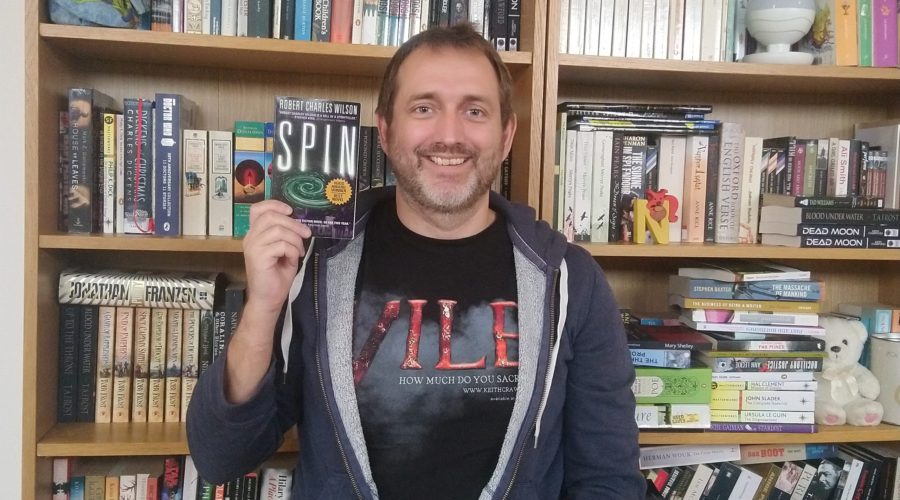Link: Amazon, Goodreads. Price: £5.77
Two twins and their friend are lying in a back yard one night when the stars go out. Thus begins a story that spans thirty odd years, as the three of them find strive to survive and overcome the slow apocalypse that has overtaken the earth. What has caused the stars to go out? Who is behind this mystery? And how much longer does humanity have?
A little while ago I got a review for my Science Fiction novel “Dead Moon” which simple said “Three stars. Not as good as Asimov.” This made be both laugh and feel a little melancholy. Laugh, because I never expected anyone to compare me to Asimov and so shall take it as a compliment. Melancholy, because when you think of the true greats of hard science-fiction, the science is basically physics. The science in my science fiction is economics, cognitive psychology, and a fair chunk of epistemology. That’s the stuff I know, and I find it interesting enough to write about it. But it will never stand shoulder to shoulder (even if I were a better writer) with names like Asimov or Heinlein.
Wilson writes like a modern-day Arthur C Clarke, and if that isn’t a high enough recommendation for you then I don’t know what is. In some ways (yes, I’m going there) Wilson is better. Not only does he pose realistic hard physics questions, but the emotional context and development of the characters is magnificently portrayed. This isn’t just about what you do when the stars go out. It is a realistic and touching portrayal of a world where everyone lives under the constant threat of annihilation.
A good friend of mine said that the core of science-fiction is presenting brilliant characters with an incredibly hard problem, one that is enormous in scale, and then watching them trying to figure it out. Spin is an excellent example of this, surprising you at every turn, filled with utterly convincing people trying to achieve the impossible – from saving the world to saving your love. A truly brilliant read.



